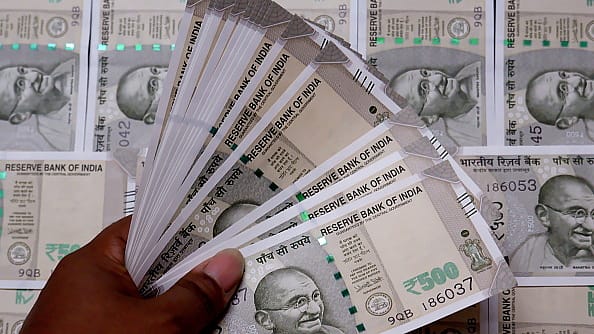SC verdict: Electoral bonds worth ₹16,518 cr collected so far
ADVERTISEMENT

As the Supreme Court struck down the Electoral Bond Scheme in a landmark judgement today, calling it "unconstitutional", the total value of such bonds purchased by individuals or group of people so far remains at ₹16,518 crore, according to the government data.
Revealing this information in Parliament during the recent Interim Budget 2024 Session on February 5, 2024, the finance ministry said the total value of Electoral Bonds purchased in phase-I to phase-30 from the State Bank of India stands at about ₹16,518 crore.
Minister of State in the finance ministry, Pankaj Chaudhary, also talked about the government's spending on operations of the Electoral Bond Scheme. "The commission paid to State Bank of India by Government of India for issuance and redemption of Electoral Bonds from Phase I to Phase XXV is about ₹8.57 crore.”
The amount paid by the government of India to Security Printing & Minting Corporation of India Ltd (SPMCIL) to date is about ₹1.90 crore, he said.
The Centre had notified the Electoral Bond Scheme in the year 2018. No GST or any other taxes or cess are charged from the purchaser on the purchase of electoral bonds. Explaining the rationale for "exempting donors" who buy electoral bonds from paying any service charg, the minister stated that the objective of the scheme is to ensure "clean tax paid money" is coming into political funding via proper banking channel.
"As per clause 10 of the Electoral Bond Scheme (Gazette Notification dated 02.01.2018), no commission, brokerage or any other charges for issue of bond shall be payable by the buyer against the purchase of the Bond," he said.
Any person of Indian origin can buy electoral bonds, either singly or jointly with other individuals. Only the parties registered and which secured not less than 1% of the votes polled in the last General Election or the Assembly polls are eligible to receive them. The scheme was brought in by the NDA government to end the previous system of the use of anonymous money, often in cash donations, for political funding.
In a landmark verdict just a few months before the General Elections in India, the Supreme Court today struck down the Electoral Bond Scheme, which allowed donors to anonymously buy electoral bonds and send funds to a political party.
A five-judge Constitution bench of Chief Justice of India (CJI) DY Chandrachud and Justices Sanjiv Khanna, BR Gavai, JB Pardiwala and Manoj Misra delivered the verdict.
"The Electoral Bond Scheme...are violative of Article 19-1A and unconstitutional. The deletion of the provision to section 182-1 of the Company's Act, providing an unlimited corporate contribution to the political parties, is arbitrary and violative of Article 14," Chief Justice of India DY Chandrachud said. The SC bench said information about corporate contributors through the Electoral Bonds Scheme must be disclosed as the donations by companies are purely for "quid pro quo" purposes.
The apex court also asked SBI to issue details of the political parties, which received electoral bonds and all the particulars received and submit them to ECI by March 6. SBI shall also furnish bonds' purchase details with the date of purchase, name of the purchaser, and denomination, the order said. The top court has directed the Election Commission to publish these details on its site by March 13, 2024.